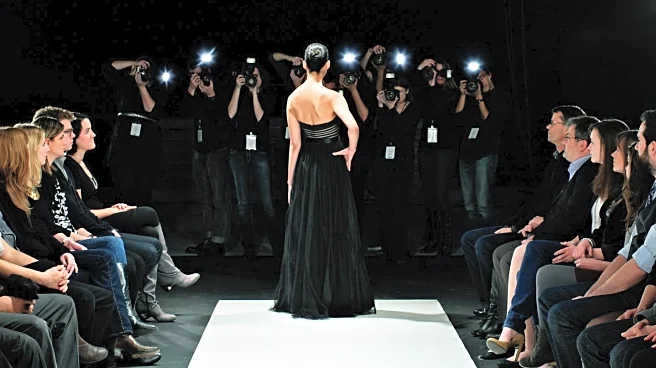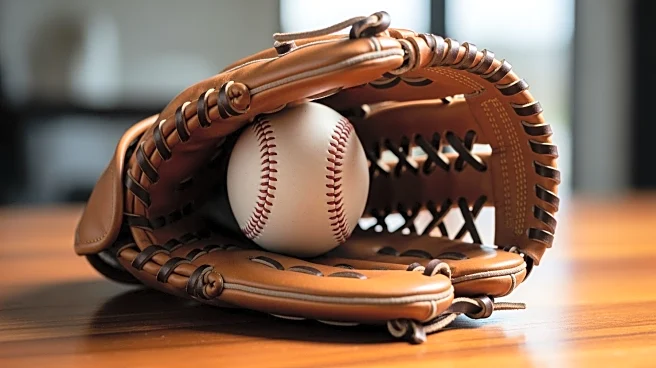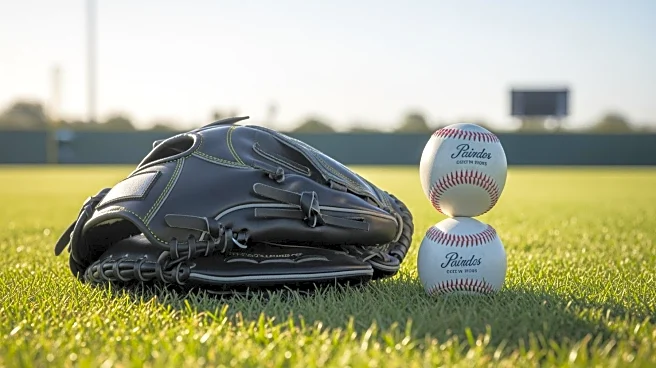What's Happening?
The Row's annual sample sale in New York has become a major event, drawing large crowds eager to purchase luxury items at significant discounts. The sale offers up to 75% off on high-end merchandise such
as shoes, coats, and blazers, attracting both loyal customers and new shoppers. The event has gained popularity over the years, with lines forming around the block and coverage from major fashion publications. Many attendees use paid line sitters to secure their spot, highlighting the high demand for the brand's minimalist and high-quality pieces. The sale has also become a social media sensation, with shoppers sharing their purchases on platforms like TikTok and Instagram.
Why It's Important?
The Row's sample sale underscores the enduring appeal of luxury fashion and the lengths consumers will go to obtain high-quality items at reduced prices. This event highlights the brand's strong market presence and the consumer desire for 'quiet luxury' despite changing fashion trends. The sale also reflects broader economic behaviors, where consumers are willing to invest in timeless pieces that promise long-term value. Additionally, the presence of resellers at the event indicates a secondary market for luxury goods, which can influence pricing and availability in the retail sector.
What's Next?
As The Row's sample sale continues to attract attention, it may influence other luxury brands to adopt similar strategies to engage consumers and boost sales. The event's success could lead to increased competition among brands to offer exclusive deals and experiences. Furthermore, the growing trend of using social media to showcase purchases may drive brands to enhance their digital marketing efforts to capitalize on consumer engagement. The presence of resellers might also prompt brands to implement stricter purchasing limits to maintain exclusivity and control over their products.
Beyond the Headlines
The Row's sample sale highlights the cultural significance of luxury fashion in contemporary society, where owning high-end items is often associated with status and personal identity. The event also raises ethical questions about consumerism and the environmental impact of fashion production and waste. As consumers continue to seek out luxury goods, brands may face pressure to adopt more sustainable practices and address the environmental concerns associated with fast fashion.









